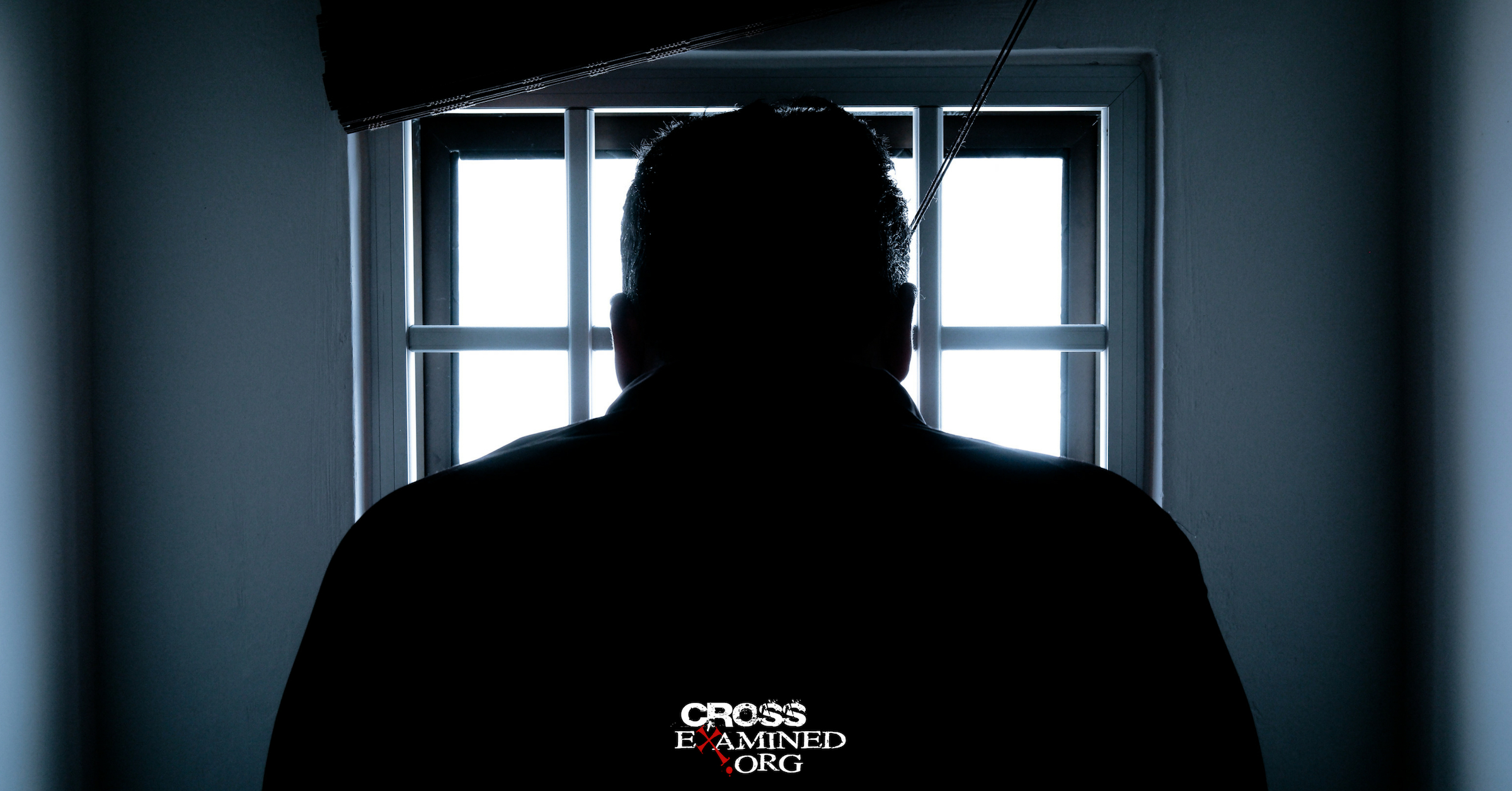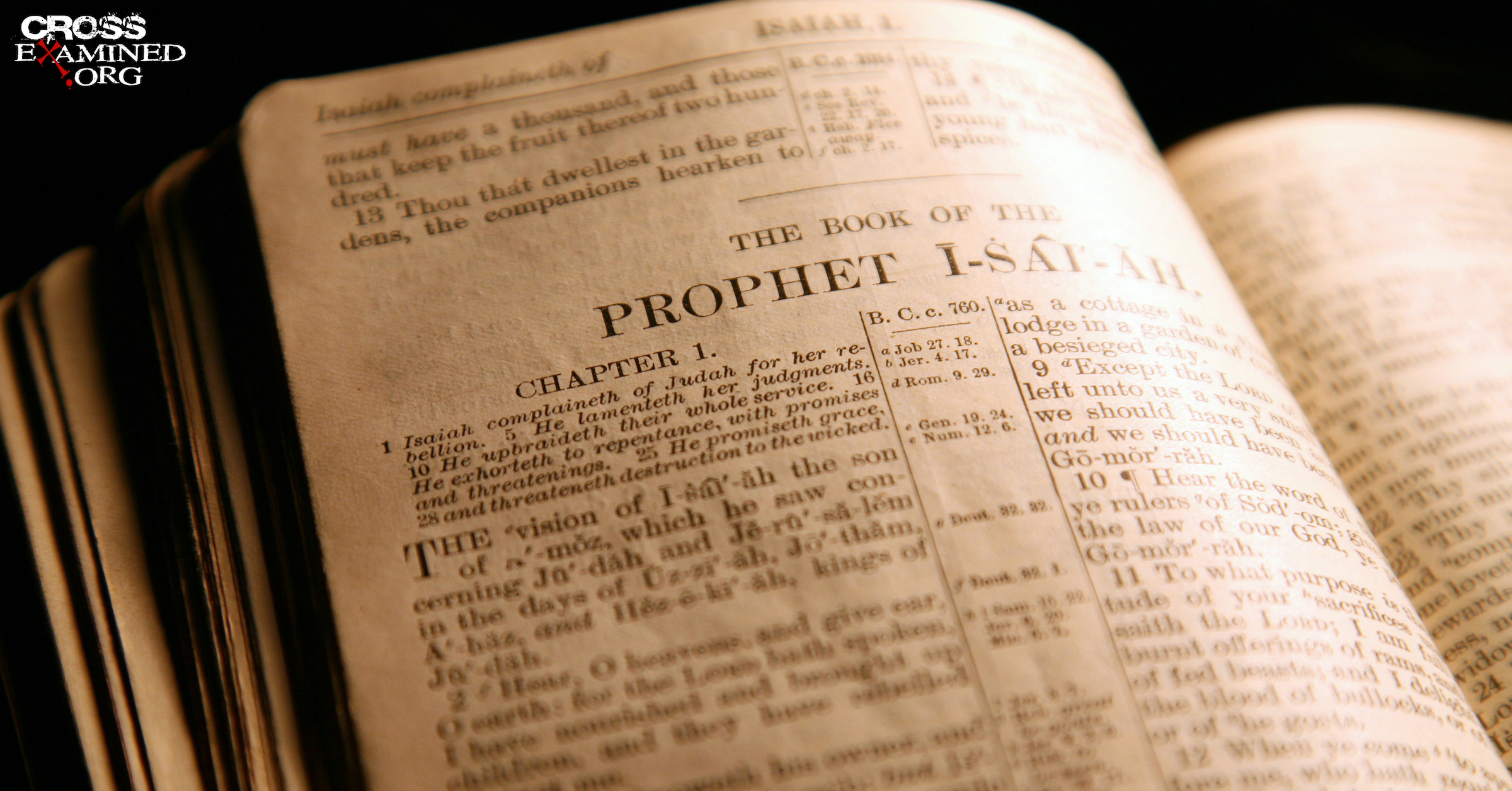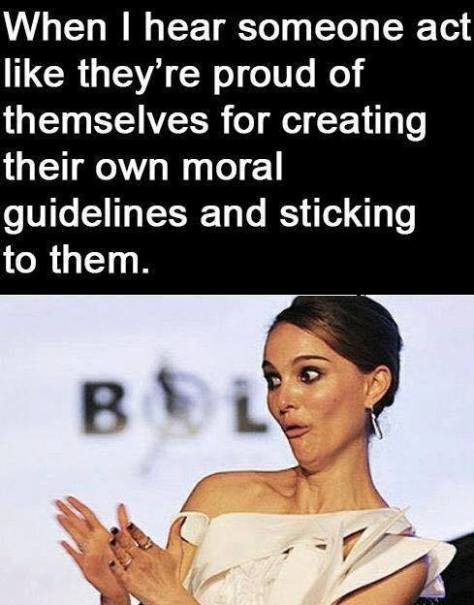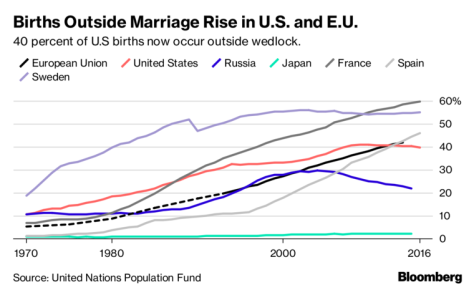By Natasha Crain
I’ve recently had a lot of people asking for recommendations for Christmas gift ideas, for both kids and adults, so I’ve put together this detailed list of my top picks! They are almost all books, but there are a few other ideas as well. Gift ideas for kids come first (mostly for the under 12 crowd, since that’s where my own kids are), followed by gift ideas for adults. Enjoy!
30 Christmas Gift Ideas for Christian Kids
Children’s Bibles and Bible Reading Tools
For kids not ready to read a complete Bible, children’s Bibles are a great starting point. They feature selected Bible accounts, a simplified narrative, and engaging pictures. The problem with many children’s Bibles, however, is that they include too little of the Bible (you’ll always get Noah’s Ark, but how about Nehemiah or Job?) and have overly simplified narratives that leave out important points. I’ve looked at lots, and lots of Bibles in this category and the following is my favorite by far:
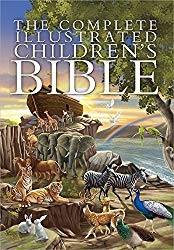 The Complete Illustrated Children’s Bible includes a much greater breadth of biblical accounts than most other children’s Bibles. I love that. The narratives themselves are simple and direct, so they are very accessible. At the same time, you won’t find them watered down in kiddie language as in many books. The illustrations are beautiful. This is almost 300 pages, and there’s nothing I’ve seen that even comes close to the quality here for younger kids. The website says this is targeted at 5- to 8-year-olds. (If you have a child 9+, don’t get a children’s Bible. It’s time to move up to learning to read a full Bible!)
The Complete Illustrated Children’s Bible includes a much greater breadth of biblical accounts than most other children’s Bibles. I love that. The narratives themselves are simple and direct, so they are very accessible. At the same time, you won’t find them watered down in kiddie language as in many books. The illustrations are beautiful. This is almost 300 pages, and there’s nothing I’ve seen that even comes close to the quality here for younger kids. The website says this is targeted at 5- to 8-year-olds. (If you have a child 9+, don’t get a children’s Bible. It’s time to move up to learning to read a full Bible!)
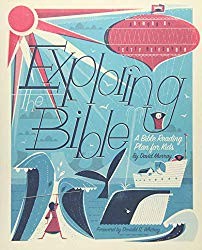 Exploring the Bible: A Bible Reading Plan for Kids isn’t a children’s Bible, but rather a Bible reading plan. Kids won’t read every word of the Bible using this, but it’s a solid selection that takes you beginning to end. Each day there are verses to read with a small box for them to answer a basic question about the reading. For kids who enjoy writing, this makes it more engaging than simply a list of passages to read. I’ll be honest and say I got this for my 9-year-old twins last Christmas and they didn’t get too far with it despite liking the concept and presentation. But I am recommending it because it’s a unique book that would work really well if the parent is committed to focusing on using it as the primary Bible reading tool for the year.
Exploring the Bible: A Bible Reading Plan for Kids isn’t a children’s Bible, but rather a Bible reading plan. Kids won’t read every word of the Bible using this, but it’s a solid selection that takes you beginning to end. Each day there are verses to read with a small box for them to answer a basic question about the reading. For kids who enjoy writing, this makes it more engaging than simply a list of passages to read. I’ll be honest and say I got this for my 9-year-old twins last Christmas and they didn’t get too far with it despite liking the concept and presentation. But I am recommending it because it’s a unique book that would work really well if the parent is committed to focusing on using it as the primary Bible reading tool for the year.
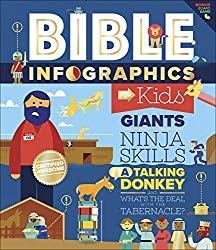 Bible Infographics for Kids is a 50-page book with beautifully designed spreads that present the Bible in infographic form! My 10-year-old son read through this in a day and loved it. Periodically he comes up with some kind of Bible fact that he learned from reading this, so it really stuck with him. It’s an engaging presentation for any kid, but I especially want to highlight this for parents who may have a child who really resists Bible reading. You certainly aren’t reading the actual Bible with this book, but it can be a stepping stone with it’s appealing visual design to get your less-than-focused elementary age boy to sit down and look at the biblical story through different eyes. I think this book is seriously undermarketed, as I have never heard anyone talk about it. I would never have heard of it myself had the publisher not sent me a copy. It would make an excellent gift and is very unique!
Bible Infographics for Kids is a 50-page book with beautifully designed spreads that present the Bible in infographic form! My 10-year-old son read through this in a day and loved it. Periodically he comes up with some kind of Bible fact that he learned from reading this, so it really stuck with him. It’s an engaging presentation for any kid, but I especially want to highlight this for parents who may have a child who really resists Bible reading. You certainly aren’t reading the actual Bible with this book, but it can be a stepping stone with it’s appealing visual design to get your less-than-focused elementary age boy to sit down and look at the biblical story through different eyes. I think this book is seriously undermarketed, as I have never heard anyone talk about it. I would never have heard of it myself had the publisher not sent me a copy. It would make an excellent gift and is very unique!
Children’s Devotionals (12 & Under)
I am extremely picky about devotionals. I can spend the whole afternoon at a Christian bookstore taking them off the shelf, reading a few selections, and deciding to put them back because 1) they are too simple/watered down, 2) they are theologically not even quite right, or 3) they are focused on character development (“here’s how to be a good person!”) far more than Jesus himself. I also want to be clear that I would never recommend devotionals as a substitute for reading the Bible with your kids. But, as a supplement that kids can read on their own or with you, they can be helpful…if they aren’t bad. With that in mind, here are a select few I have chosen and appreciated (note my kids are all 10 and under, so I, unfortunately, do not have recommendations yet for the teen crowd). I’m listing them in order from youngest to oldest audience.
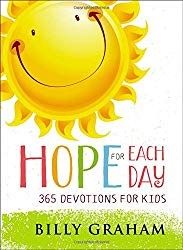 Hope for Each Day: 365 Devotions for Kids is listed as a devotional for 6- to 10-year-olds, but I would say it’s more for 4- to 8-year-olds (older kids need more meat than this provides). For the younger crowd, these are solid, theologically accurate devotions that get beyond the surface and are great discussion starters (not that that’s what you want before bed!).
Hope for Each Day: 365 Devotions for Kids is listed as a devotional for 6- to 10-year-olds, but I would say it’s more for 4- to 8-year-olds (older kids need more meat than this provides). For the younger crowd, these are solid, theologically accurate devotions that get beyond the surface and are great discussion starters (not that that’s what you want before bed!).
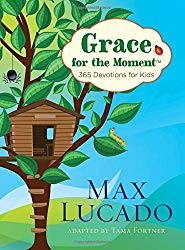 Grace for the Moment: 365 Devotions for Kids is another solid choice for younger kids. This one, too, is listed for 6- to 10-year-olds, but I would say it should skew a little younger (more like 5 to 8 or 9). These are short devotions that end with some questions for self-reflection. I liked that the book (in both design and content) is appropriate for boys or girls so you can use them for family time with multiple kids.
Grace for the Moment: 365 Devotions for Kids is another solid choice for younger kids. This one, too, is listed for 6- to 10-year-olds, but I would say it should skew a little younger (more like 5 to 8 or 9). These are short devotions that end with some questions for self-reflection. I liked that the book (in both design and content) is appropriate for boys or girls so you can use them for family time with multiple kids.
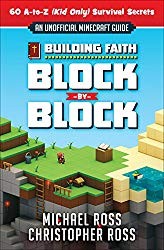 Building Faith Block by Block [An Unofficial Minecraft Guide] is a devotional for boys who are Minecraft lovers. Each devotional features a Minecraft story and then applies it briefly to a Bible passage with some questions for reflection. Unlike the other devotionals, I did not evaluate this in depth before getting it. My son loves Minecraft, and I trust his judgment, so I decided to let him read and tell me what he thought of it. He really liked it but concluded it was heavy on the Minecraft and light on the biblical learning. Still, I wanted to include it here because if you have a boy who isn’t inclined toward devotionals but likes Minecraft (I bet there are many!), this could be a great way to begin getting them to engage more with the Bible. I’m shocked the website says it’s for kids 12 to 18. I would say 8 to 12.
Building Faith Block by Block [An Unofficial Minecraft Guide] is a devotional for boys who are Minecraft lovers. Each devotional features a Minecraft story and then applies it briefly to a Bible passage with some questions for reflection. Unlike the other devotionals, I did not evaluate this in depth before getting it. My son loves Minecraft, and I trust his judgment, so I decided to let him read and tell me what he thought of it. He really liked it but concluded it was heavy on the Minecraft and light on the biblical learning. Still, I wanted to include it here because if you have a boy who isn’t inclined toward devotionals but likes Minecraft (I bet there are many!), this could be a great way to begin getting them to engage more with the Bible. I’m shocked the website says it’s for kids 12 to 18. I would say 8 to 12.
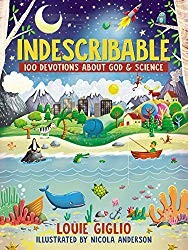 Indescribable: 100 Devotions about God & Science has 100 devotions for science-loving kids (boys or girls). They focus on amazing facts about God’s creation, and there’s some really interesting stuff in here! The whole idea is to help kids realize how powerful, intelligent, personal, and purposeful our Creator is. It’s also an attractive book, with cute illustrations throughout. As I’m sure some will be wondering, this book is mostly appropriate regardless of your view on the age of the Earth. However, there are a few devotionals that are specific to a young Earth view (e.g., a chapter on “Shooting down the Big Bang”).
Indescribable: 100 Devotions about God & Science has 100 devotions for science-loving kids (boys or girls). They focus on amazing facts about God’s creation, and there’s some really interesting stuff in here! The whole idea is to help kids realize how powerful, intelligent, personal, and purposeful our Creator is. It’s also an attractive book, with cute illustrations throughout. As I’m sure some will be wondering, this book is mostly appropriate regardless of your view on the age of the Earth. However, there are a few devotionals that are specific to a young Earth view (e.g., a chapter on “Shooting down the Big Bang”).
 For Girls Like You: A Devotional for Tweens is a good choice for tween girls who are drawn more to girl-specific examples and a relational approach. While it’s not in depth, it’s theologically solid. My 10-year-old daughter, who sometimes has trouble holding interest to finish whole books, finished this one on her own with no prompting from me. If your daughter likes this one, Wynter Pitts has a second book which I would equally recommend, called You’re God’s Girl. There’s also a matching coloring book which would make a nice complementary gift!
For Girls Like You: A Devotional for Tweens is a good choice for tween girls who are drawn more to girl-specific examples and a relational approach. While it’s not in depth, it’s theologically solid. My 10-year-old daughter, who sometimes has trouble holding interest to finish whole books, finished this one on her own with no prompting from me. If your daughter likes this one, Wynter Pitts has a second book which I would equally recommend, called You’re God’s Girl. There’s also a matching coloring book which would make a nice complementary gift!
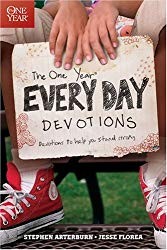 The One Year Everyday Devotions: Devotions to help you stand strong is a good choice for both boys and girls in the 9 to 12 age range. The readings are quite short, but they make some deep points and apply to everyday situations. If you have a girl who isn’t super “girly”, this is a perfect choice (no pink princesses here!).
The One Year Everyday Devotions: Devotions to help you stand strong is a good choice for both boys and girls in the 9 to 12 age range. The readings are quite short, but they make some deep points and apply to everyday situations. If you have a girl who isn’t super “girly”, this is a perfect choice (no pink princesses here!).
Apologetics Books
Apologetics is the study of how we know Christianity is true. If you want to raise faithful kids in a challenging secular world, teaching apologetics is crucial. Raising your kids with this understanding ultimately must start with you (so see my book recommendations under the parents’ section below), but there are a few excellent apologetics books for kids under 12 as well. These should go hand in hand with all else you’re doing!

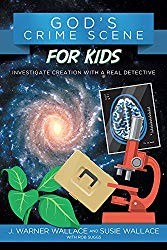
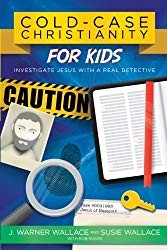
The most comprehensive set of books in this category is the trilogy by J. Warner Wallace. Wallace is a cold-case homicide detective and former atheist who became a Christian after applying detective methodologies to the investigation of biblical reliability. He has three adult books that investigate the truth of Christianity from a similar detective’s perspective: God’s Crime Scene (evidence for God’s existence), Cold-Case Christianity(evidence for Christianity specifically), and Forensic Faith (the necessity of having a faith based on good evidence). I recommend these all the time, and now he has excellent kids’ versions of the same books: Forensic Faith for Kids, God’s Crime Scene for Kids and Cold-Case Christianity for Kids. They are written for 8- to 12-year-olds and correspond to the chapter sequence of the adult versions so you can study together. Because they are written in a detective style, they are really engaging. These books are easy reads that are packed with value for 8- to 12-year-olds. There’s even a free website with corresponding videos and worksheets. I’d recommend getting all three, but if you start with just one, I’d go with Forensic Faith for Kids because it establishes the importance of apologetics before they dig deeper.
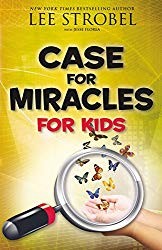 You’re probably familiar with Lee Strobel’s best-selling book, Case for Christ. You may or may not know he has a whole series of similar books that make a case for the truth of Christianity from a journalist’s perspective, and great kids’ versions to go with them. Check out the following titles and see which might be of greatest interest to your 9- to 12-year olds: Case for Miracles for Kids, Case for a Creator for Kids, Case for Christ for Kids, Case for Faith for Kids, and Case for Grace for Kids.
You’re probably familiar with Lee Strobel’s best-selling book, Case for Christ. You may or may not know he has a whole series of similar books that make a case for the truth of Christianity from a journalist’s perspective, and great kids’ versions to go with them. Check out the following titles and see which might be of greatest interest to your 9- to 12-year olds: Case for Miracles for Kids, Case for a Creator for Kids, Case for Christ for Kids, Case for Faith for Kids, and Case for Grace for Kids.
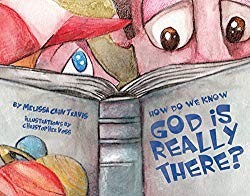
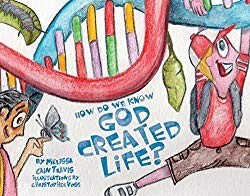
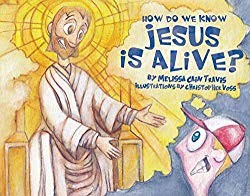
Melissa Cain Travis has written a trilogy of illustrated storybooks that explain key apologetics concepts through an engaging tale (to be read in a single setting). These are very cool because most books for 9- to 12-year-olds aren’t designed to be read in a single session. These are great for the family to read together and then discuss. Kids can then go back and read them on their own. The three books are: How Do We Know God is Really There?, How Do We Know God Created Life?, and How Do We Know Jesus is Alive?
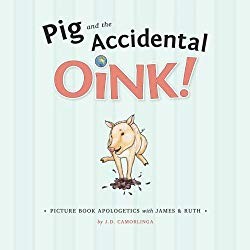
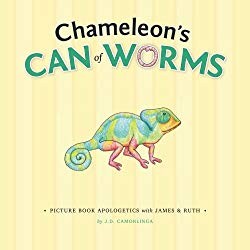
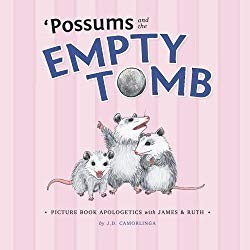
If you have kids in the 5-8 age range, who aren’t ready for the books I just talked about, start here! The Picture Book Apologetics series talks about apologetics concepts at the most basic level, and have sweet, simple pictures to capture a young child’s imagination. Pig and the Accidental Oink! (Volume 1) introduces the cosmological argument (that the universe had to have a creator), Chameleon’s Can of Worms (Volume 2) introduces the problem with moral relativism (some things are not a matter of opinion!), Possums and the Empty Tomb (Volume 3) introduces evidence for the resurrection, Fox and the Hard Day helps kids understand the problem of evil, and Pooch and the Pearly Gates teaches kids about heaven and the new Earth. In addition to these story books, the authors have a kid’s book on logical fallacies (i.e., errors people make in reasoning, and how to think more critically). The content of this one would be more appropriate for kids 8+: Pitfalls: A Quick Guide to Identifying Logical Fallacies for Families.

What Am I? is the story of a boy named Amare, his robot Bobo, and his little sister Nya. Amare makes a variety of things, like a tower and a cage, and asks his robot what he thinks. The robot always replies with a description of what those things are made of–“Excellent collection of colourful plastic parts.” Amare explains that they are made of the same parts, but they are made FOR very different things. He then explains all his inventions and what they are made FOR even though Bobo, as a robot, can only detect what they are made OF. Eventually, Amare goes to his mom to ask what HE is made for and learns that if you want to find out what you were made for, you need to ask the one who made YOU. Amare and Nya go on to learn what God told us he made humans for. I LOVE that this book tackles the naturalistic worldview (that we’re nothing more than our physical parts) head-on at a level perfect for elementary age kids to understand. It’s a 30-page picture book and easy to read, yet will facilitate deep conversations.
Non-Book Gifts
While this post is focused on book gifts, there are a couple of awesome non-book gifts I would highly recommend.
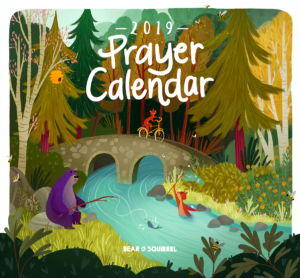 Bear & Squirrel is a company that puts out a yearly prayer calendar. The images are amazingly adorable each month and every day tells you what to pray for! It’s such a great way to give kids ideas of how to pray in more diverse ways than “thank you for today.” We bought one for 2018 for all of our kids, and they loved them.
Bear & Squirrel is a company that puts out a yearly prayer calendar. The images are amazingly adorable each month and every day tells you what to pray for! It’s such a great way to give kids ideas of how to pray in more diverse ways than “thank you for today.” We bought one for 2018 for all of our kids, and they loved them.
 I am constantly inspired by the amazing work that author Kristen Welch from We Are That Family does around the world to create jobs. Earlier this year I subscribed to her fair trade bracelet of the month club. For $15 each month you receive a beautiful handmade bracelet that empowers women in difficult economic (and other) circumstances. I have two daughters, so they take turns getting to have the bracelets that come. They look forward to receiving them every month and learning about the women who crafted them. This is an extremely meaningful gift that your daughter can receive throughout the year.
I am constantly inspired by the amazing work that author Kristen Welch from We Are That Family does around the world to create jobs. Earlier this year I subscribed to her fair trade bracelet of the month club. For $15 each month you receive a beautiful handmade bracelet that empowers women in difficult economic (and other) circumstances. I have two daughters, so they take turns getting to have the bracelets that come. They look forward to receiving them every month and learning about the women who crafted them. This is an extremely meaningful gift that your daughter can receive throughout the year.
 We don’t watch a lot of videos, so this list is conspicuously missing recommendations in this area. However, I am absolutely crazy about Owlegories. There are six DVDs with a total of 18 episodes so far. Each episode is short, adorable, and actually quite funny (as in, makes an adult laugh with its clever humor). They teach great lessons about the Bible that get away from cliches and feature special messages at the end of each by a well-known Christian teacher such as Matt Chandler. My son AND daughters like these. They would make a wonderful stocking stuffer!
We don’t watch a lot of videos, so this list is conspicuously missing recommendations in this area. However, I am absolutely crazy about Owlegories. There are six DVDs with a total of 18 episodes so far. Each episode is short, adorable, and actually quite funny (as in, makes an adult laugh with its clever humor). They teach great lessons about the Bible that get away from cliches and feature special messages at the end of each by a well-known Christian teacher such as Matt Chandler. My son AND daughters like these. They would make a wonderful stocking stuffer!
30 Christmas Gift Ideas for Christian Adults
Since almost all of my reading is on apologetics and theology, I’m going to focus these gift ideas on books in these areas. There are so many great books that can be recommended, but my goal here is to give one great idea for each type of gift recipient I list. Since this is recipient-based rather that category-based, I won’t include detailed descriptions as I did above. If you are looking for a gift for someone matching the description, just click over to Amazon to read more. In no particular order…
For both prayer warriors and those who struggle to pray:
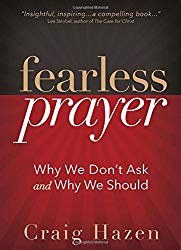
For those going through a difficult time caring for others:
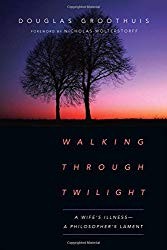
For those who want (or need!) to begin learning about the reliability of the Bible (this is a FABULOUS new, short, and accessible book):
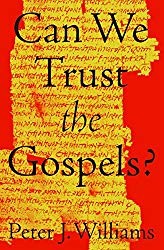
For newer Christians, or Christians who want to have a better understanding of how the whole biblical narrative fits together:
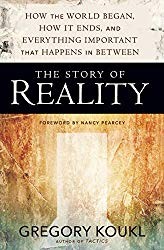
For Christians who want to better understand the evidence for the deity of Christ:
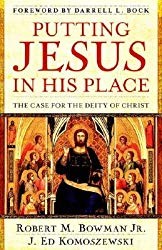
For Christians struggling with doubt in their faith:
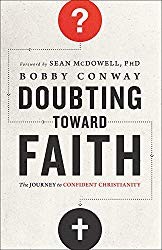
For Christians interested in a theological and scientific critique of theistic evolution (the idea that God created everything through evolutionary processes):
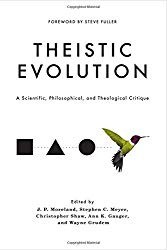
For Christians who want (or need) to begin learning about the importance of apologetics for their faith:
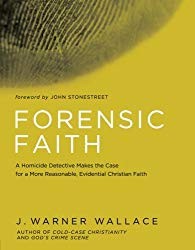
For Christians who are interested in the intersection of culture and faith on topics of sexuality:
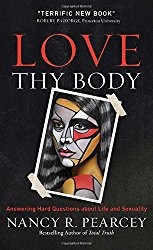
For Christians who are interested in a critique of the atheistic worldview and better understanding its logical implications:
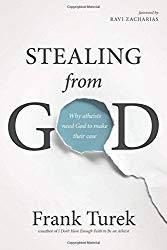
For Christian parents who want to start learning apologetics so they can be better prepared to have deep conversations about faith with their kids of any age (yes–this is my own book!):
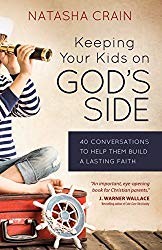
For Christian parents who want to start having conversations with their kids about the evidence for God’s existence, the relationship between God and science, the nature of God, and the logical implications of a Christian vs. atheistic worldview (my second book!):
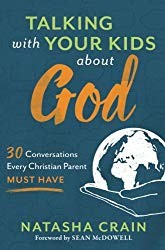
For Christians who are struggling with or want to better understand the existence of evil and suffering:
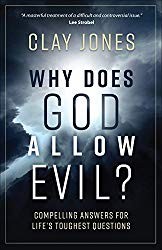
For Christians who want to study the book of Psalms in a creative way (e.g., coloring and journaling):
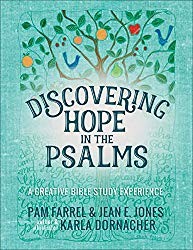
For Christians who want a primer on basic theology:
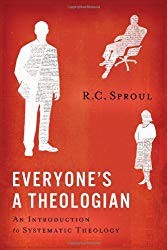
For Christians who are passionate about apologetics and love meaty reference books (this is the recent complete update to the classic–it’s incredible!):
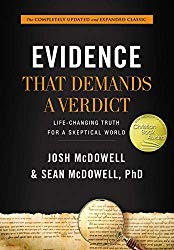
For Christians who have read everything you’ve heard of on apologetics and you want to find something probably off their radar (I randomly discovered this book a couple of months ago, and it was so enlightening, yet I’ve never seen anyone talking about it!):
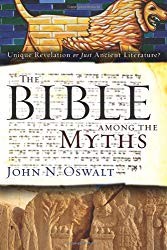
For Christians interested in the topic of free will vs. God’s sovereignty from a non-Calvinistic view:
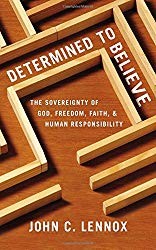
For Christians interested in Old Testament issues of violence, slavery, morality, etc.:
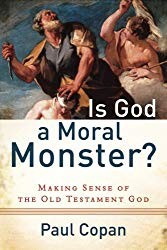
For Christians interested in understanding Islam:
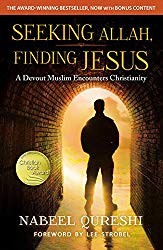
For Christians who want to better understand the attributes of God:
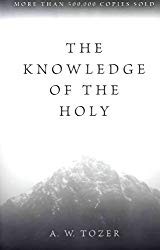
For Christians who are interested in the intersection of faith and science (and how science supports faith):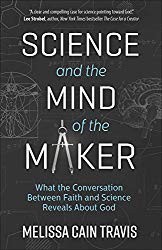
For Christians interested in the evidence for God’s supernatural involvement in the world: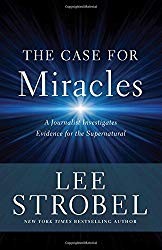
For Christians who enjoy a clever, edgy sense of humor and critiques of atheism: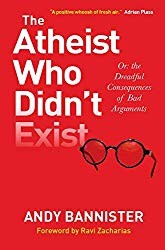
For Christians interested in early Christian distinctiveness in the Roman world:
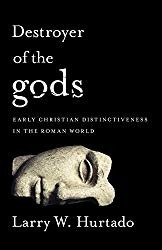
For Christians who aren’t necessarily into apologetics but would enjoy reading answers to common tough questions asked by skeptics: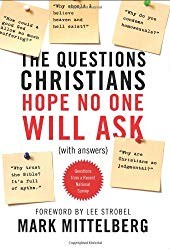
For Christians interested in how modern scholars distort the Gospels:
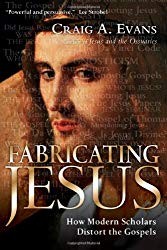
For Christians going on or returning from short-term mission trips:

For Christians who have read basic books on the reliability of the Gospels and want to dig deeper:
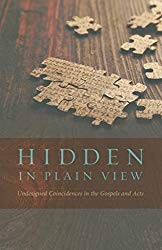
For Christian women who struggle with perfectionism:

If you found this post helpful, please share with others!
Natasha Crain is a blogger, author, and national speaker who is passionate about equipping Christian parents to raise their kids with an understanding of how to make a case for and defend their faith in an increasingly secular world. She is the author of two apologetics books for parents: Talking with Your Kids about God (2017) and Keeping Your Kids on God’s Side (2016). Natasha has an MBA in marketing and statistics from UCLA and a certificate in Christian apologetics from Biola University. A former marketing executive and adjunct professor, she lives in Southern California with her husband and three children.
Original Blog Source: http://bit.ly/2A0V0E4

